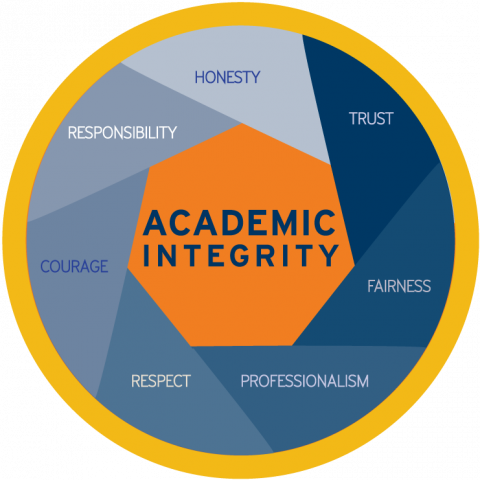What is academic integrity assignment?
Academic integrity is the cornerstone of intellectual growth and personal development in the educational setting. Assignment writing is one of the many components that support academic honesty. When finishing tasks, students must comprehend and accept the value of academic integrity. The significance of academic integrity in assignment writing is discussed in this article, along with its function in encouraging authentic learning, advancing ethical principles and preserving the legitimacy of education.

The Importance of Academic Integrity in Assignment Writing
Promoting Learning:
Fundamentally, education seeks to promote authentic learning and knowledge development. To accomplish this, writing assignments with academic integrity is essential. Students who conduct sincere study, severe analysis and unique thought not only improve their grasp of the material but also sharpen their analytical and critical thinking abilities. This process needs to be improved by plagiarism and other dishonest behaviour, which denies students the chance to connect fully with the subject matter and stifles the growth of their intellectual capacities.
Promoting moral principles:
In the academic setting, integrity and ethics are interwoven. Honest and unique writing on assignments fosters moral ideals outside of the classroom. Students who follow the rules of academic integrity develop a sense of accountability and integrity that becomes a part of their personality. As a result, they develop into people who respect honesty, authenticity, and fairness in their personal and professional lives. On the other hand, academic misconduct can harm a student’s reputation and future endeavours by eroding moral norms.

Establishing Credibility:
Their students’ academic integrity significantly impacts the legitimacy of educational institutions and the degrees they provide. A vital component of the educational system is the rigorous assessment of student’s work, and it is crucial to maintain the integrity of assignments. Institutions devote a lot of money to developing courses, creating conducive learning environments, and evaluating students’ progress. These efforts are undermined by plagiarism or cheating, which also lowers the credibility of the student and the institution. Students contribute to a reliable academic ecosystem that benefits everyone by keeping academic integrity when writing assignments.
Developing research skills:
Students can practise their research abilities by writing assignments. A key component of higher education is obtaining data, analysing sources, and synthesizing ideas. When pupils plagiarise, they skip over this critical step and forfeit the chance to improve their research abilities. Writing original assignments allows students to consider many viewpoints, challenge presumptions, and make well-reasoned arguments. These skills can be applied in various academic and professional settings, enabling students to develop into lifelong learners and valuable members of their fields.

Preparation for Challenges in the Real World:
Academic assignments present difficulties similar to those encountered in everyday life. Professionals are frequently expected to analyse complicated problems, offer creative solutions, and effectively express their ideas. Students who complete their assignments honestly are effectively preparing themselves for the requirements of their future employment. Critical thinking, effective communication, and an honest approach to problems are all abilities that can lead people to success in a variety of fields.

Academic integrity is a guiding principle that influences students’ academic performance and personal growth rather than just a collection of regulations. Maintaining academic integrity when writing assignments is essential for encouraging sincere learning experiences, advancing moral principles, preserving the reputation of educational institutions, developing research skills, and preparing students for the complexity of the real world.




